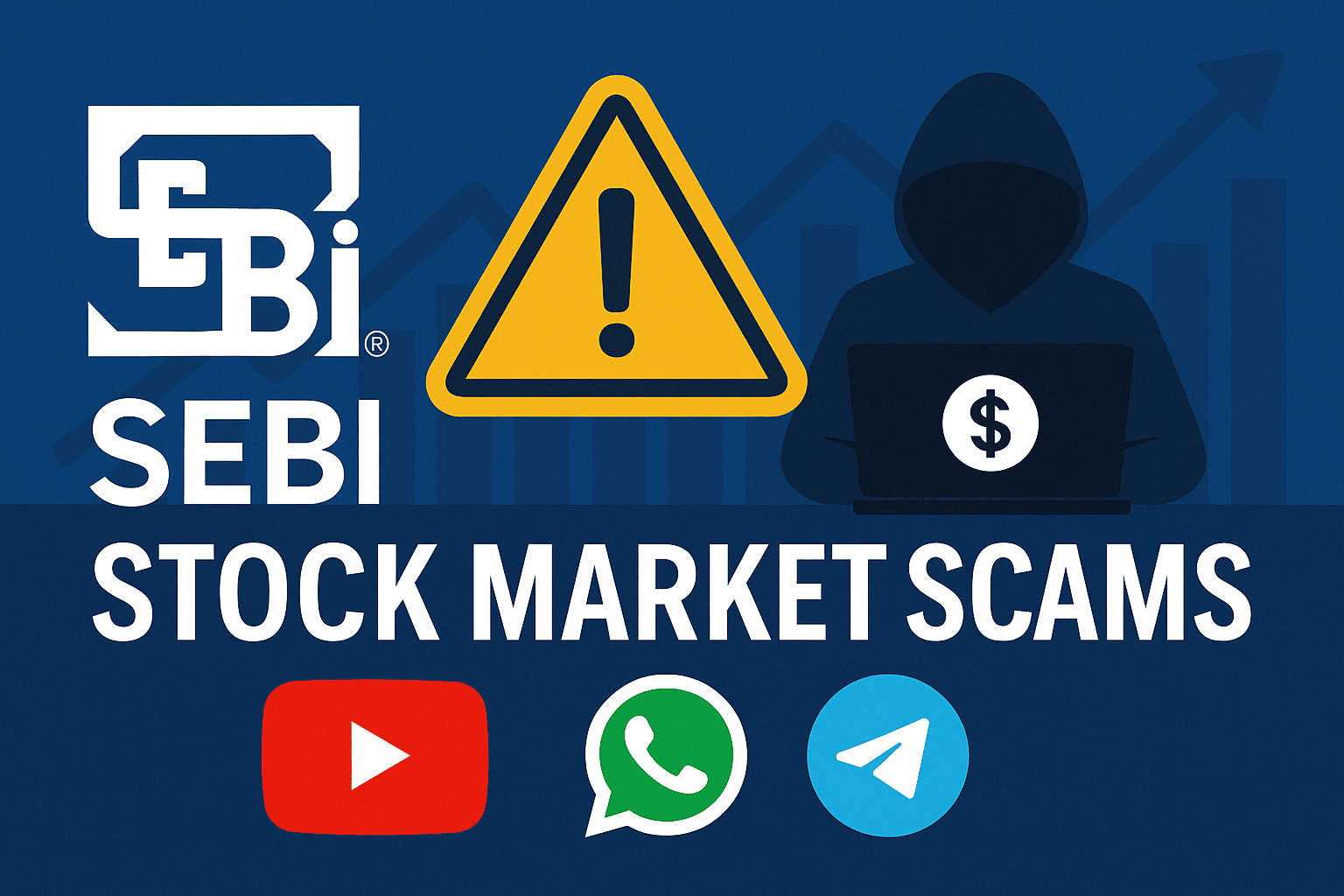India is witnessing a sharp rise in stock market frauds, with over 150,000 victims reported in the past year. In response, the Securities and Exchange Board of India (SEBI), headquartered in Mumbai, Maharashtra, has issued a warning highlighting four major types of stock scams spreading via social media platforms like YouTube, WhatsApp, and Telegram. With retail investors increasingly engaging in online trading, SEBI has emphasized the importance of verifying the authenticity of trading platforms and advisors.
The Securities and Exchange Board of India (SEBI), the country’s financial regulatory body headquartered in Mumbai, Maharashtra, has issued a strong warning to investors. With a sharp increase in stock market frauds reported across India, SEBI has raised the alarm about four major types of scams now spreading through social media platforms like YouTube, Facebook, WhatsApp, and Telegram.
SEBI is the regulatory authority that oversees and regulates India’s securities market to protect investors and ensure fair market practices. It plays a critical role in monitoring trading behavior and taking action against fraud.
Scams on the Rise
In the past year alone, more than 150,000 investors have fallen victim to stock market frauds. Reports show that over 400 scams are being reported every day, with total investor losses crossing $1 billion USD. Shockingly, less than 10% of these funds have been recovered.
India currently has about 130 million unique trading accounts, nearly three times more than five years ago. This surge in retail participation, combined with rising social media activity, has made investors more vulnerable to misleading content and fake trading offers online.
SEBI Highlights Four Types of Social Media Stock Scams
- Fake Investment Advisors
Scammers pretend to be SEBI-registered advisors by using fake certificates or registration IDs. They offer tips or paid courses but have no official approval. - Impersonation of SEBI-Registered Entities
Fraudsters create WhatsApp groups, Telegram channels, or apps that falsely claim to be associated with real SEBI-registered firms. They lure investors with false promises of guaranteed returns. - Manipulative Content and Private Groups
SEBI has identified misleading posts or ads that attract people to join “VIP” stock trading groups. These groups often promise insider tips or special access to stock trades—none of which are real. - Fake Platforms Offering Premium Services
Fraudulent trading platforms claim to offer “exclusive” services such as IPO allotments at discounted rates or special institutional trading benefits. These are designed to trap unsuspecting investors.
How Investors Can Stay Safe
To help investors avoid these scams, SEBI has advised checking the registration status of intermediaries and verifying trading platforms before engaging in any financial activity. This information is available on SEBI’s official website:
- Registered Intermediaries: https://www.sebi.gov.in/intermediaries.html
- Investor Support and App Verification: https://investor.sebi.gov.in/Investor-support.html
Additionally, SEBI has advised all registered firms to use phone numbers starting with the ‘1600’ series for service calls to help customers identify legitimate communication.
As online scams become more sophisticated, SEBI urges investors to remain cautious and report any suspicious activity immediately.




